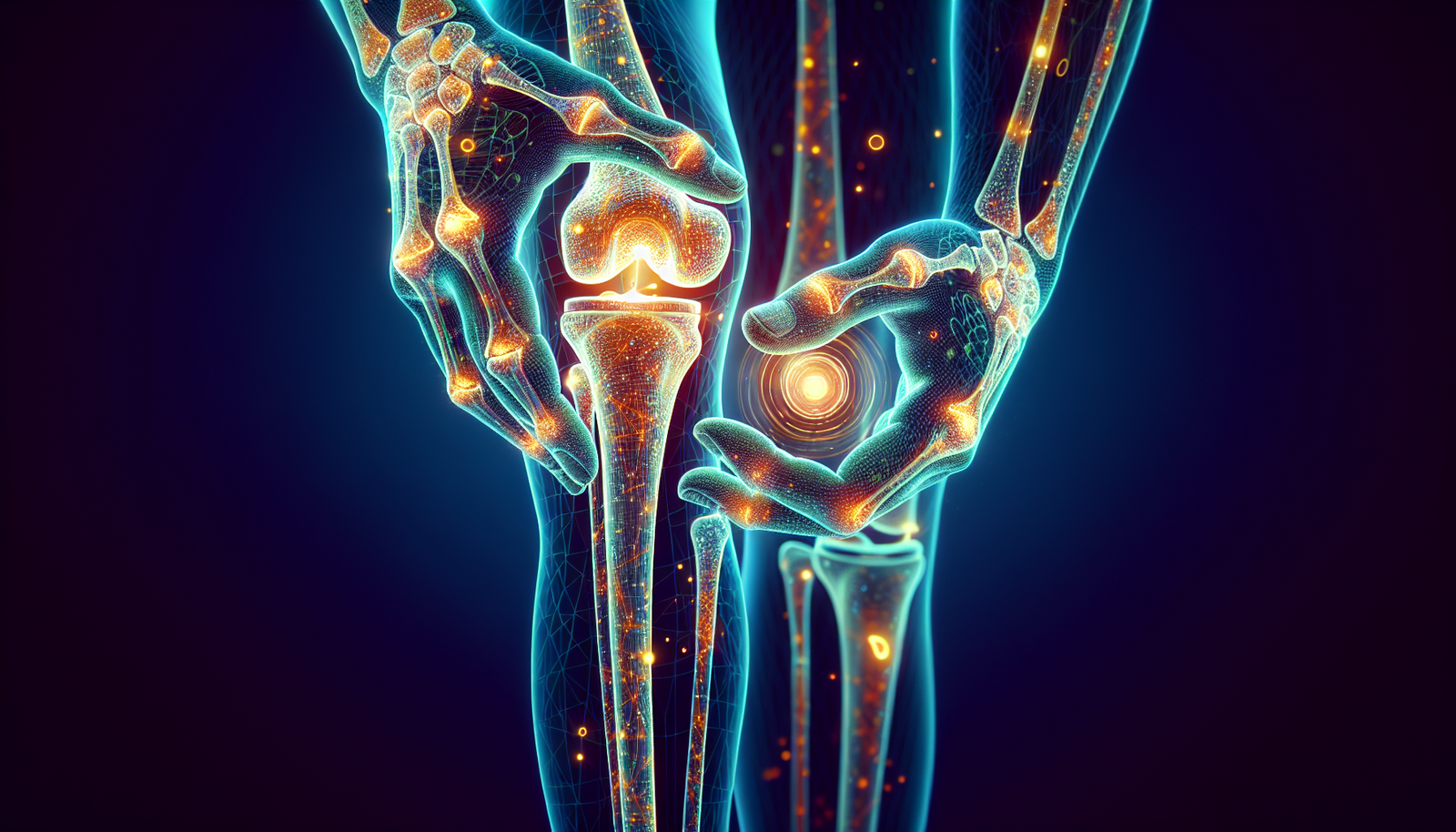Top Herbal Supplements for Arthritis Relief
Top Herbal Supplements for Arthritis Relief
Arthritis encompasses a range of conditions that cause inflammation, pain, and stiffness in the joints. The chronic nature of arthritis has led many patients to seek alternative treatments, including herbal supplements. This article explores the top herbal supplements for arthritis relief, their active compounds, effectiveness, and any potential side effects.
1. Turmeric (Curcuma longa)
Turmeric is a popular spice known for its active compound, curcumin. Curcumin exhibits potent anti-inflammatory and antioxidant properties, making it a prime candidate for arthritis relief.
-
Mechanism of Action: Curcumin inhibits several molecules that play a significant role in inflammation, including cytokines and enzymes like COX-2.
-
Research Insights: A meta-analysis published in Phytotherapy Research found that curcumin supplementation significantly reduced pain and improved physical function in osteoarthritis and rheumatoid arthritis patients.
-
Recommended Dosage: A typical dose ranges from 400 to 600 mg of curcumin extract, taken 2-3 times daily.
- Potential Side Effects: Generally considered safe, curcumin can cause digestive discomfort in high amounts.
2. Boswellia Serrata (Indian Frankincense)
Boswellia serrata is another powerful anti-inflammatory herb commonly used in Ayurvedic medicine. Its active compounds, known as boswellic acids, have shown promise in alleviating arthritis symptoms.
-
Mechanism of Action: Boswellic acids inhibit the synthesis of leukotrienes, inflammatory mediators that exacerbate arthritis symptoms.
-
Research Insights: A 2015 study in the Journal of Phytotherapy Research demonstrated significant improvements in pain and physical dysfunction among participants with knee osteoarthritis.
-
Recommended Dosage: Standard doses range from 300 to 500 mg of boswellia extract, taken two to three times daily.
- Potential Side Effects: It is generally well-tolerated, although mild gastrointestinal upset can occur.
3. Ginger (Zingiber officinale)
Ginger is a well-known herbal remedy recognized for its anti-inflammatory and analgesic properties, making it beneficial for arthritis.
-
Mechanism of Action: Gingerols and shogaols, the active compounds in ginger, inhibit prostaglandin synthesis, reducing pain and inflammation.
-
Research Insights: A study published in the Archives of Internal Medicine indicated that ginger extract significantly reduced osteoarthritis-related pain in the knee.
-
Recommended Dosage: Fresh ginger can be consumed as a tea, while supplements often recommend about 1,000 mg of ginger extract daily.
- Potential Side Effects: Excessive consumption may lead to heartburn or digestive issues.
4. Devil’s Claw (Harpagophytum procumbens)
Devil’s Claw is a traditional African herb known for its anti-inflammatory and pain-relief properties.
-
Mechanism of Action: It contains harpagoside, which has demonstrated efficacy in pain relief by reducing pro-inflammatory substances.
-
Research Insights: A review in Phytotherapy Research concluded that Devil’s Claw is effective for treating osteoarthritis and lower back pain.
-
Recommended Dosage: A common dosage is between 600 to 1,200 mg of devil’s claw extract daily.
- Potential Side Effects: May cause gastrointestinal disturbance or allergic reactions in sensitive individuals.
5. Willow Bark (Salix alba)
Willow bark has been used for centuries for its analgesic effects, resembling aspirin’s efficacy in pain relief.
-
Mechanism of Action: The active compound salicin converts to salicylic acid in the body, providing anti-inflammatory and pain-relieving effects.
-
Research Insights: Research in the American College of Rheumatology highlighted its potential in reducing osteoarthritis pain, similar to conventional painkillers.
-
Recommended Dosage: Doses of 60-240 mg of standardized willow bark extract are commonly recommended.
- Potential Side Effects: May include gastrointestinal upset, ringing in the ears, and allergic reactions.
6. EPA and DHA (Omega-3 Fatty Acids)
While not traditional herbs, omega-3 fatty acids derived from fish oil and algae are essential in managing arthritis symptoms.
-
Mechanism of Action: Omega-3 fatty acids decrease the production of inflammatory compounds, providing a therapeutic effect in joint pain.
-
Research Insights: A comprehensive review published in Rheumatology International confirmed that omega-3 supplementation significantly reduced joint pain and stiffness.
-
Recommended Dosage: A common recommendation is 1,000-3,000 mg of combined EPA and DHA daily.
- Potential Side Effects: High doses may cause fishy aftertaste, gastrointestinal discomfort, and increased bleeding risk.
7. Nettle (Urtica dioica)
Nettle, or stinging nettle, is a traditional herbal remedy used for inflammation and pain relief in arthritis.
-
Mechanism of Action: It reduces inflammation and has immune-modulating properties, which could benefit those with autoimmune arthritis.
-
Research Insights: A study in the Journal of Ethnopharmacology indicated that nettle extract significantly reduced joint pain and swelling.
-
Recommended Dosage: Typical doses range from 300 to 500 mg of nettle extract, taken up to three times daily.
- Potential Side Effects: Mild skin irritation can occur if handled improperly, but it is generally safe for consumption.
8. Celery Seed Extract (Apium graveolens)
Celery seed extract is rich in antioxidants and can be an effective anti-inflammatory agent for arthritis sufferers.
-
Mechanism of Action: Contains compounds like luteolin and apigenin that modulate inflammation and provide pain relief.
-
Research Insights: Studies have shown that celery seed extract can help with pain and swelling associated with arthritis.
-
Recommended Dosage: A dosage of 100 to 300 mg of standardized celery seed extract per day is commonly suggested.
- Potential Side Effects: May include digestive upset, and it should be avoided by individuals with allergies to celery.
9. Black Seed Oil (Nigella sativa)
Black seed oil, derived from the seeds of the Nigella sativa plant, is noted for its anti-inflammatory properties.
-
Mechanism of Action: Thymoquinone, the main active component, has been shown to reduce inflammatory markers associated with arthritis.
-
Research Insights: A clinical trial published in Clinical Biochemistry highlighted improvements in markers of inflammation and pain relief in arthritis patients using black seed oil.
-
Recommended Dosage: A standard dose is 1-2 teaspoons of black seed oil daily.
- Potential Side Effects: Generally safe, excessive consumption can lead to digestive issues.
10. Ashwagandha (Withania somnifera)
Ashwagandha, an adaptogenic herb, is used to reduce stress and inflammation, which can exacerbate arthritis symptoms.
-
Mechanism of Action: Contains withanolides, which exhibit anti-inflammatory effects and modulate the immune response.
-
Research Insights: A study published in Journal of Clinical Psychology indicated that ashwagandha supplements enhance general well-being and may reduce pain perception.
-
Recommended Dosage: Dosages often range from 300 to 500 mg of standardized ashwagandha extract taken twice daily.
- Potential Side Effects: Generally well-tolerated; high doses may lead to stomach upset or diarrhea.
Final Thoughts
The integration of herbal supplements into arthritis management can provide relief from inflammation and pain. Each herbal remedy discussed has distinct mechanisms, effective dosages, and potential side effects. Consultation with healthcare providers is crucial before initiating any supplement regimen, especially for individuals on medication or with existing health conditions.
By combining these herbal supplements with conventional treatments, sufferers of arthritis may achieve a more holistic approach to managing their symptoms, improving their quality of life.








